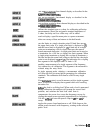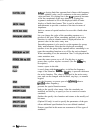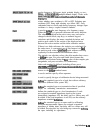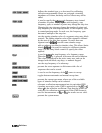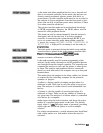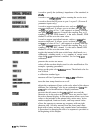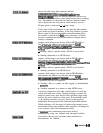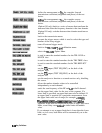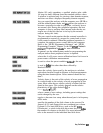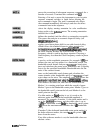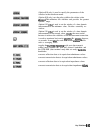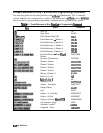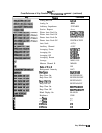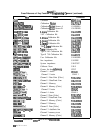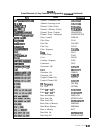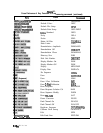
(Option 010 only) remembers a specified window pulse width
(or step rise time) different from the standard window values.
A window is activated only for viewing a time domain response,
and does not affect a displayed frequency domain response.
lets you control the analyzer with the computer over HP-IB as
with the talker/listener mode, and
also
allows the analyzer to
become a controller in order to plot, print, or directly access
an external disk. During this peripheral operation, the host
computer is free to perform other internal tasks that do not
require use of the bus (the bus is tied up by the network
analyzer during this time).
The pass control mode requires that the external controller is
programmed to respond to a request for control and to issue
a take control command. When the peripheral operation is
complete, the analyzer passes control back to the computer.
Refer to the “HP-IB Programming Reference” and “HP-IB
Programming Examples” chapters in the HP 8753E
Network
Analyzer
Programmer’s
GzG&e
for more information.
In general, use the talker/listener mode for programming the
analyzer unless direct peripheral access is required.
selects the A or B power sensor calibration factor list for use in
power meter calibration measurements
is used to select the preset condition
deilned
by the user.
is used to
define
kits other than those offered by
Hewlett-Packard.
enters the velocity factor used by the analyzer to calculate
equivalent electrical length in distance-to-fault measurements
using the time domain option. Values entered should be less
than 1.
Velocity factor is the ratio of the velocity of wave propagation
in a coaxial cable to the velocity of wave propagation in free
space. Most cables have a relative velocity of about 0.66 the
speed in free space. This velocity depends on the relative
permittivity of the cable dielectric
(E,)
as
velocity
flldOT
=
l/6
.
selects a menu of user settings, including preset settings that
can be changed by the user.
toggles to become view setup when the analyzer is in frequency
offset mode.
specifies the number of the disk volume to be accessed. In
general, all 3.5 inch floppy disks are considered one volume
(volume 0). For hard disk drives, such as the HP
9153A
(Winchester), a switch in the disk drive must be set to
de&e
the number of volumes on the disk. For more information,
refer to the manual for the individual hard disk drive.
Key Definitions
B-61



